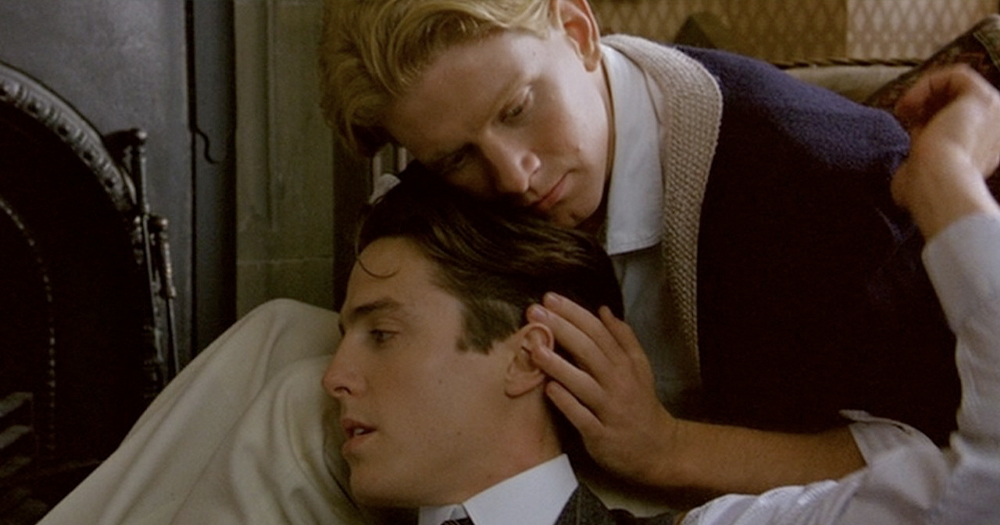Pop culture guru David Ferguson is back, taking a look at EM Forster’s classic of gay literature ‘Maurice’ and its film adaptation starring Hugh Grant.
A while back I decided I wanted to read a gay romance novel. The first one that appeared on my search was Maurice (1971) by EM Forster. Forster is probably best known for A Room with a View (1908), Howards End (1910) and A Passage to India (1924).
The novel is a coming of age tale about the relationship between middle-class Maurice Hall and upper-class Clive Durham, who meet while studying at Cambridge in the early 1900’s. Durham realised he was gay from a young age but Hall struggles with his sexuality. He even seeks the help of a psychiatrist / hypnotist to ‘cure’ him. Knowing that the treatment is failing, the doctor suggests going to Europe to a country where same-sex relationships are legal.
Forster wrote Maurice from 1913 to 1914 after being inspired by the cross-class relationship between gay activist Edward Carpenter and his working class partner, George Merrill. Forster showed the manuscript to friends but didn’t seek to publish it in his lifetime due the attitudes to same-sex couples at the time. Indeed, a note was found with manuscript read: “Publishable, but worth it?” Philip Toynbee, reviewing in The Observer, feared that Forster’s “literary executors have given the wrong answer to that.”
Like many reviewers at the time, Toynbee compared it unfavourably to the novelist’s other works, labelling it “depressing,” stating “it is the case that every good writer needs his own systems of prohibitions and restraints” and that “it now seems that one of the special restraints that Forster needed was precisely that he should not express his homosexual feelings directly.”
CP Snow, writing in the Financial Times, called it “very short, and the story simple” and “artistically quite wrong.” (This comment is quite interesting as one of the things that leant Forster against publishing was that he did not believe people would accept the ending). Snow wasn’t against publication as Forster “probably wanted it published. If he didn’t, he was experienced enough to have it destroyed.”
Walter Allen, for the Daily Telegraph, described it “of all his novels… the least in literary value” and as a “thesis novel” which has the flaw of the thesis novel of “the over-concentration on a single issue”. However, he did say writing the novel was “a brave thing to do.”
Maurice was adapted into, for me, an equally enjoyable film in 1987 which won several awards at the Venice Film Festival and an Oscar nomination for Best Costume Design. The studio, Merchant Ivory, is known for having a type and Maurice fits perfectly as it is a period piece set in the early 20th century featuring lavish sets and top British actors portraying genteel characters who suffer from disillusionment and tragic entanglements.
Merchant Ivory had made a critically acclaimed adaptation of A Room with a View and would go on to make Howards End. The film features Hugh Grant, in his first major role, as Clive Durham and James Wilby as Maurice Hall. I would highly recommend both but suggest giving the novel a try first.
You can check out more of David Ferguson’s pop culture musings here.
© 2021 GCN (Gay Community News). All rights reserved.
Support GCN
GCN is a free, vital resource for Ireland’s LGBTQ+ community since 1988.
GCN is a trading name of National LGBT Federation CLG, a registered charity - Charity Number: 20034580.
GCN relies on the generous support of the community and allies to sustain the crucial work that we do. Producing GCN is costly, and, in an industry which has been hugely impacted by rising costs, we need your support to help sustain and grow this vital resource.
Supporting GCN for as little as €1.99 per month will help us continue our work as Ireland’s free, independent LGBTQ+ media.
